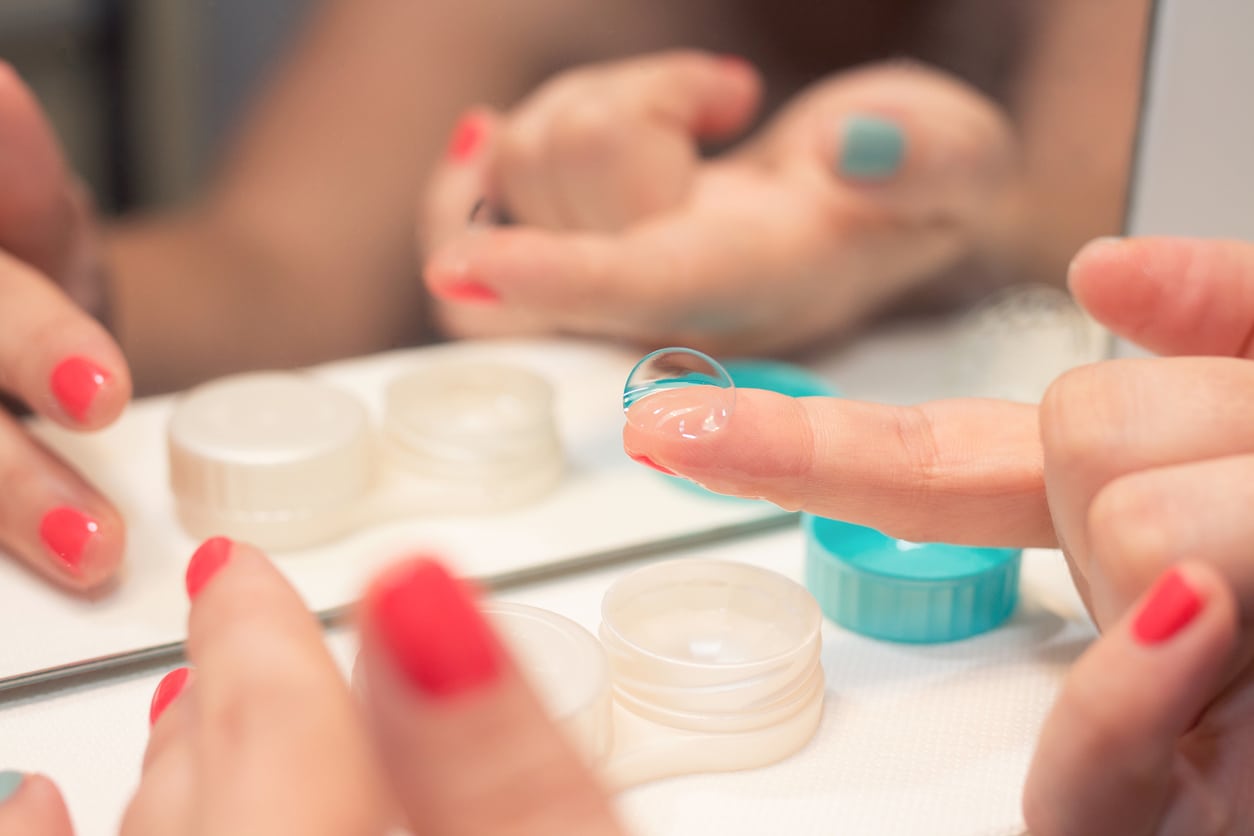
Top 10 Tips for Contact Lens Wearers
Contact lenses can make a big difference in your ability to see well, but without the many negative aspects of regular glasses, like fogging in damp weather or pressing on your nose and ears. Your daily habits and self-management strategies will make a big difference in your ability to wear contacts successfully and get the most out of them. These strategies range from the basics of safe contact care to tips and tricks for cold weather, summer heat and many other issues. Here are some of the best tips to protect your eyes, manage your contacts and get the most out of them.
Tip #1: Explore Your Options
Contact lenses come in different forms. They may be hard or soft, extended wear or disposable. Each offers benefits but may also have some negative aspects, so take the time to think about your possible choices and try different types. Your eyes or personal situation may change over time as well, so what worked three years ago might not work today. There could be a new technology that is just what you need.
Tip #2: Follow Instructions
You'll get a lesson in contact care from your eye doctor or his/her staff when you first get your contacts. For your own health and to protect your vision, one of the most important things you can do is to follow those instructions. That doesn't mean sometimes – it means every single time. Make sure you understand how and why to take care of your contacts.
Tip #3: Think Clean
Aside from being uncomfortable, an eye infection can do serious damage to the eye and even affect your vision. Always follow the cleanliness basics: wash your hands and clean your contacts properly. Don't use the same storage container for longer than three months. Don't reuse solutions – they are cheap, while an eye infection could cost you more than you can afford to lose.
Tip #4: Eye Protection
Glasses do give some protection against wind and can protect against sun. You'll need to think ahead, especially if you've always worn the kind of glasses that darken in sunlight. Make sure you have a good quality pair of sunglasses and wear them religiously. Always use eye protection when performing tasks where there's a risk of splashes or particles in the air that could get in your eyes.
Tip #5: Summer Issues
Heat can fry your contacts. Don't leave them in an area like your car glove box. You can get contacts with UV light protection, and if you're particularly sensitive to bright light, you may want to combine them with sunglasses (which will also protect the delicate skin around the eyes). Sunscreen isn't good for your eyes or your contacts; apply carefully and wash your hands afterward.
Tip #6: Winter Issues
Cold, dry outside air and overheated dry air indoors can make your eyes dry as well. Contacts also tend to make your eyes a little drier than they would normally be. Use eye drops to help keep your eyes well-moisturized. Sometimes it helps to take your contacts out when you get home from work and wear your glasses for the rest of the day.
Tip #7: Basic Health Strategies
Taking care of your overall health makes a difference, whether you wear contacts or glasses. Make sure you get enough sleep – sleep deprivation can certainly affect your eyes and your vision. Stay well hydrated – it helps to keep your eyes moist. A healthy diet provides plenty of antioxidants to counteract the aging effect of free radicals, which can have an impact on your visual health.
Tip #8: Nothing Lasts Forever
It's probably not reasonable to expect that you can wear the same contacts for five years; have regular checkups to see if your prescription should be changed. Trying to save money by wearing disposable or 14-day contacts longer than recommended is asking for trouble. The lenses can start to break down and accumulate proteins that increase the risk of eye infections.
Tip #9: Contacts and Cosmetics
Contact lenses can really make your gorgeous eyes noticeable compared to glasses. Enhance the effect and protect your eyes by using cosmetics properly. Put your lenses in before you apply make-up and take them out before you remove make-up. Don't use waterproof make-up; it can bind to the lens and you won't be able to get it off.
Tip #10: Pay Attention
Your body is going to tell you when things go wrong, but it's probably going to be subtle at first. Eyes a little red or irritated? Your eyes seem to feel tired when you wear your contacts for long periods or when driving at night? These are early warning signals. Don't ignore them, as they may get much worse very quickly.
Making sure you take care of both yourself and your contacts properly will go a long way to promoting your vision health. Contacts can be a great blessing in many ways. Your optometrist is your partner in this process, so make regular visits to keep everything going well.